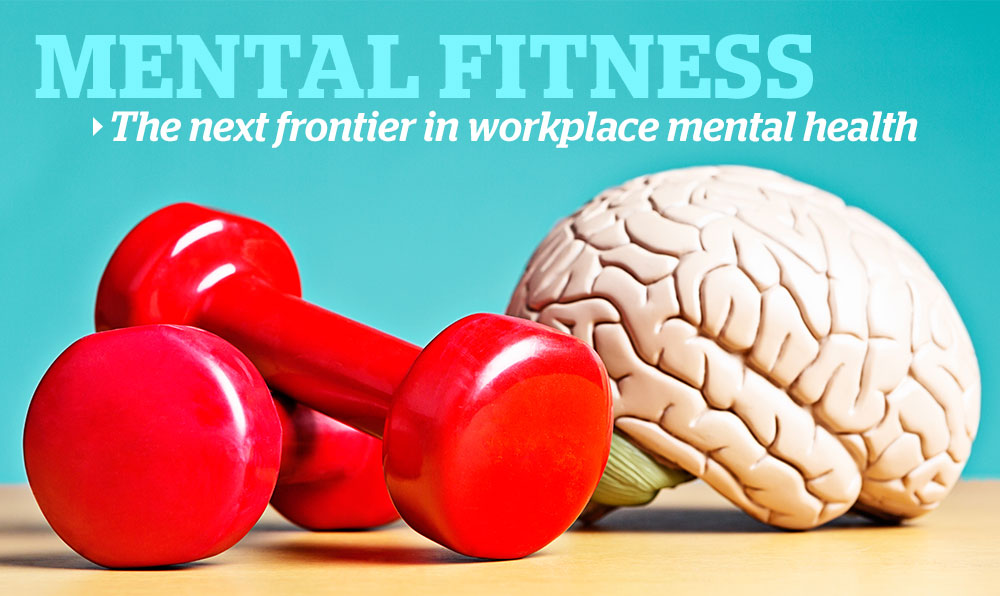

Columns/Blogs
Features
Mental Health
Resetting from negative emotional reactions without shame
By Bill Howatt

EDITOR’S NOTE: ‘Mental Fitness: The next frontier in workplace mental health’ is a weekly series, in partnership with Dr. Bill Howatt of Howatt HR Consulting in Ottawa. This series takes a deeper look at mental fitness — an approach to prevent mental harm and promote mental health.
Moments when we feel we have lost our emotional composure and did or said something we later regretted are common challenges.
Many of us make decisions based on current emotions — not on facts or logic but how we feel, as an attempt to move away from unpleasant emotions.
Such challenging moments often trigger a wish for an immediate redo and generate unpleasant emotions such as shame, an emotion that has a person focus inward and view themselves in a negative light.
Three steps to reset from negative emotional reactions
“We can grow from our emotional over-reaction moments when we take responsibility for them.” — Dr. Bill Howatt
Self-awareness
Become aware of what you are doing.
When you engage in an interaction where you feel your emotional reaction was distortional or over the top, you are in a state of unpleasant emotions, feeling shameful or bad about what you did.
The following is an example of how a person can go from feeling fine to a state of unpleasant emotions, including shame, guilt, regret, or anger:
- Trigger: You get a call from someone you care about, and you feel you are being attacked.
- Response: You react emotionally by firing back and saying hurtful things to the other person. Now you both are upset, and they hang up on you.
- Emotional state: Within minutes, you calm down and realize you overreacted. You feel bad about it and question if you are a good person and why you overreact when you perceive criticism.
The reason why many overreact negatively to triggers stems from a perceived fear installed into their belief systems (i.e., I am not good enough). This does not mean there is anything wrong with them.
It suggests that work is needed to reprogram their belief system and perhaps to close a skills gap, such as developing assertiveness skills to engage in healthy confrontation.
Psychologically Safe Workplace Awards provide employers tools, data on mental health
Empathy
Stop judging yourself and put your situation into the context that it was a moment that does not define you as a person.
Learning often involves failure, and improving mental fitness requires empathy and acceptance that you are not perfect, but you can learn. Difficult moments do not have to define who you are; they can be framed as defining where you are.
Context can help engage personal empathy. Consider a person who is having an allergic reaction. Their body was working fine before being exposed to a stimulus that triggered their immune system to react, causing annoying symptoms. The cure is not to attack themselves for having a weak body but to get allergic reaction medication that resets their body’s system.
Less-than-favourable emotional reactions do not need to define you. The cure is to create an emotional reset.
You are the same person you were before the emotional response, and with rest can get back to a more pleasant emotional state.
Empathy allows you to learn from mistakes without shame and set the intention and desire to do better next time. You cannot change what has happened; you can only create a better future.
Affirmation
Discovery and growth from challenging moments begin with taking accountability for your part.
An emotional reset can start with an affirmation like, “I can do better next time; I do not need to overreact.” Accepting that you can do better and acknowledging ownership puts the focus inward, not on blaming others.
There is no value in self-shaming, but there is value in focusing on what you learned and want.
You do not have to agree with others’ points of view. Even if they say things you disagree with, you do not have to allow their words to drive your emotions. You can always choose how to react to a situation you do not like.
The desire and commitment to stop over-reacting may not be enough. Be open to the possibility of a skills gap or blind spot you are not aware of.
Training like Pathway to Coping can enable you to self-reflect and develop skills to take your affirmation from words to reality.
 Dr. Bill Howatt is the Ottawa-based president of Howatt HR Consulting.
Dr. Bill Howatt is the Ottawa-based president of Howatt HR Consulting.
If there is a particular microskill or topic you would like to see Dr. Howatt write on that supports employees’ mental health in the workplace, please send your request to Talent Canada editor Marcel Vander Wier.
Print this page